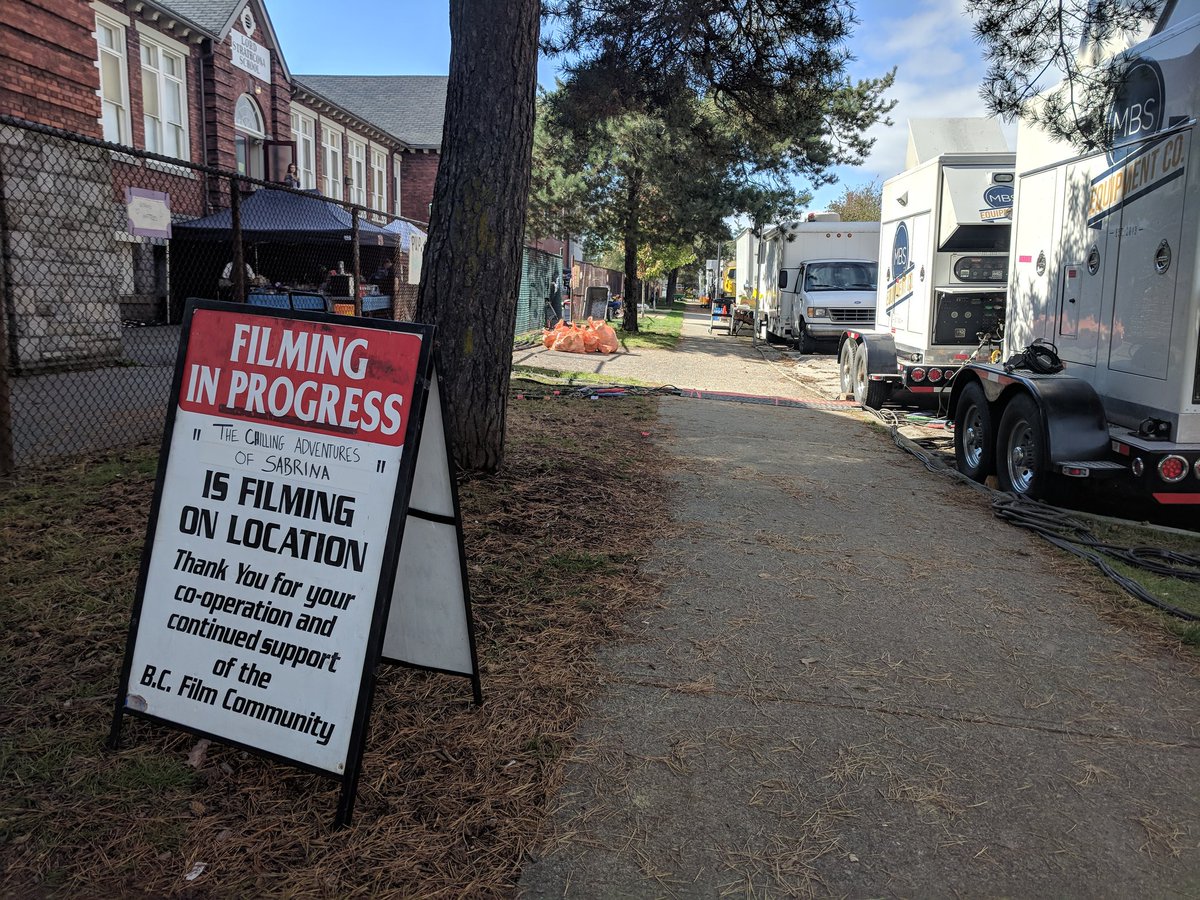A Vancouver city councillor wants to see fuel-powered generators phased out of the film and food truck industries in the city.

In a motion scheduled for next week’s council meeting, Adriane Carr is calling for a series of initiatives that would give operators access to electricity instead.
Carr’s proposal calls for the city to work with the film industry on a plan to eliminate traditional generators.
A key element of the proposed plan would include prioritizing filming hot-spots for power drops and building power tie-ins.
“Much of the filming activity and use of generators is concentrated around clusters of prime filming locations and ‘on location’ parking lots, many of which are on or near city properties, and some of which are on School Board and Park Board properties,” states the motion.
WATCH: Vancouver City council passes transit, climate ’emergency’ motions

The proposed plan would also coordinate with the city’s electric vehicle strategy planning to find locations that could both be used as EV charging stations and power tie-ins for food trucks, street festivals and events.
It also calls for a review of street closure policies in order to cut back on the need for generators during filming, and of policies and bylaws that could help supply more electrical power where needed.
Carr’s motion cites data showing Vancouver saw an estimated 2,350 filing days in 2018, each using at least one — and often up to three — diesel generators.
Each generator uses nearly 300 litres of diesel per day, it adds.
It estimates eliminating their use could slash about 5,500 tonnes of CO2 emissions per year.
City data lists nearly 90 licenced street food vendors in Vancouver in 2019.
Carr’s motion notes that more than 95 per cent of B.C.’s electricity supply comes from renewable sources, such as hydroelectric power.
Vancouver’s Greenest City Action Plan aims to see the city reduce greenhouse gas emissions by 50 per cent from 2007 levels by 2030.
- More than 115 wildfires burning in B.C., fuelling concerns for a long, destructive season
- ‘Got to be even-keel’: Canucks coach lays out playoff Game 3 priorities
- Instant ‘karma’ for faceplanting thief who stole Nanaimo business’ sign
- ‘We have a history’: Vancouver mayor explains why no Canucks outdoor party




Comments